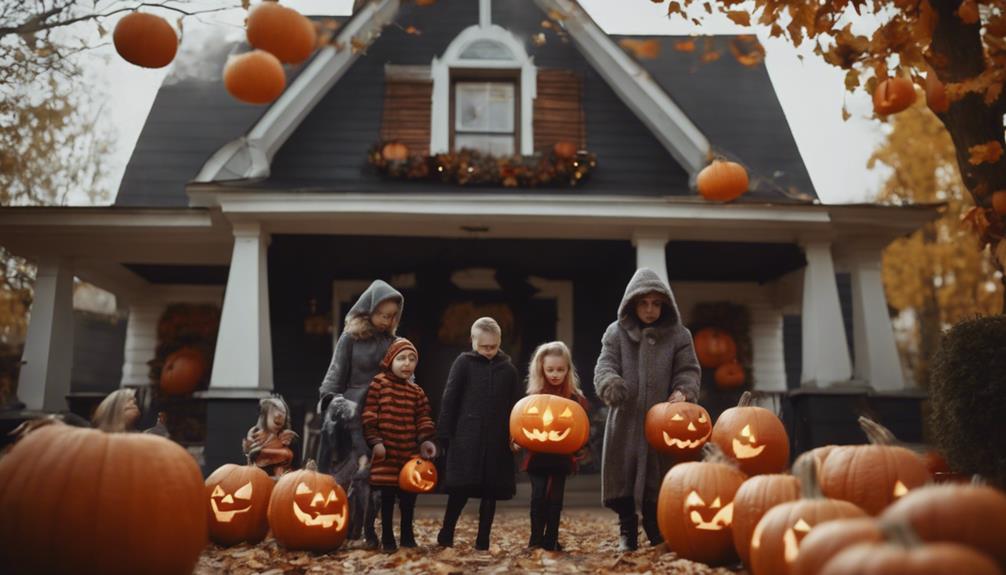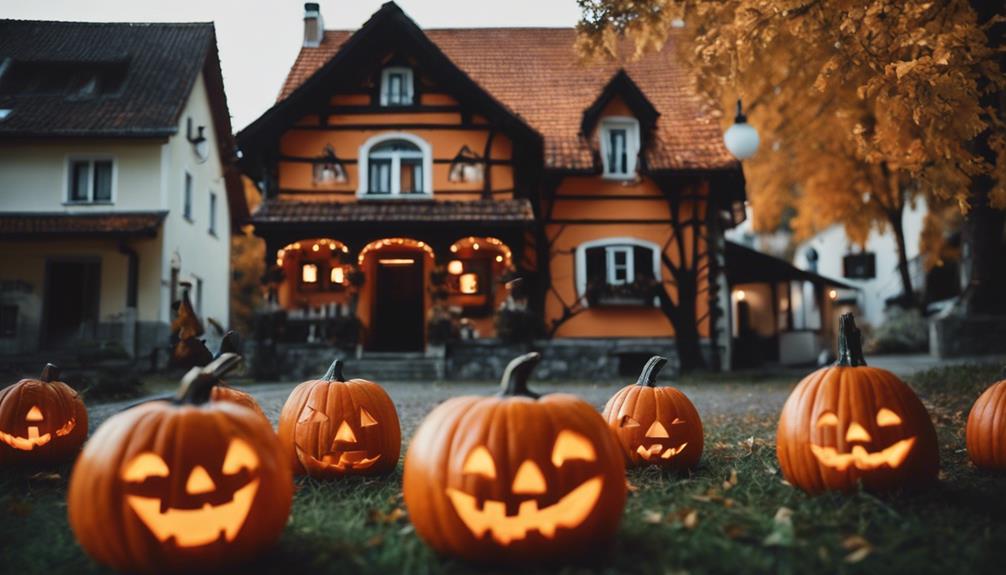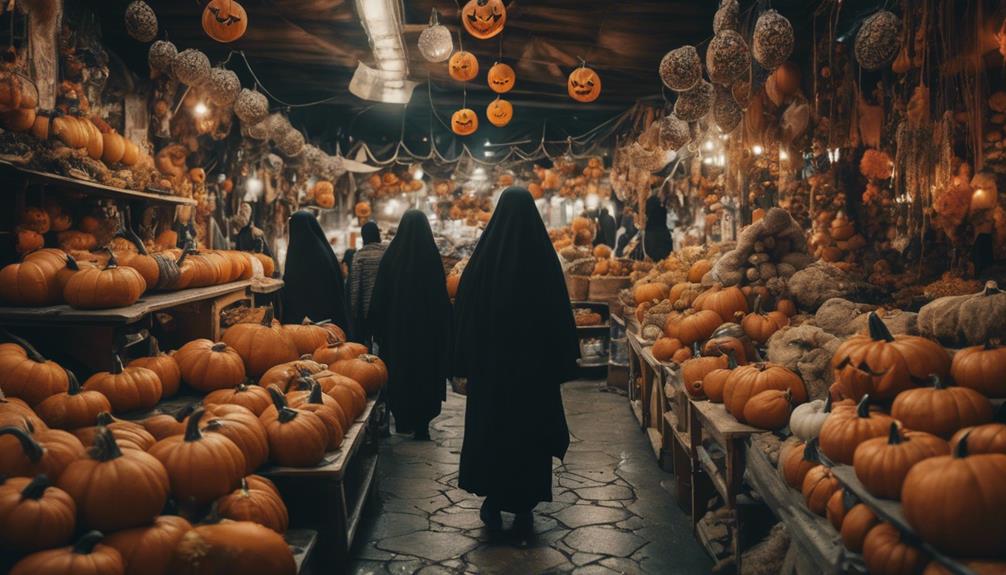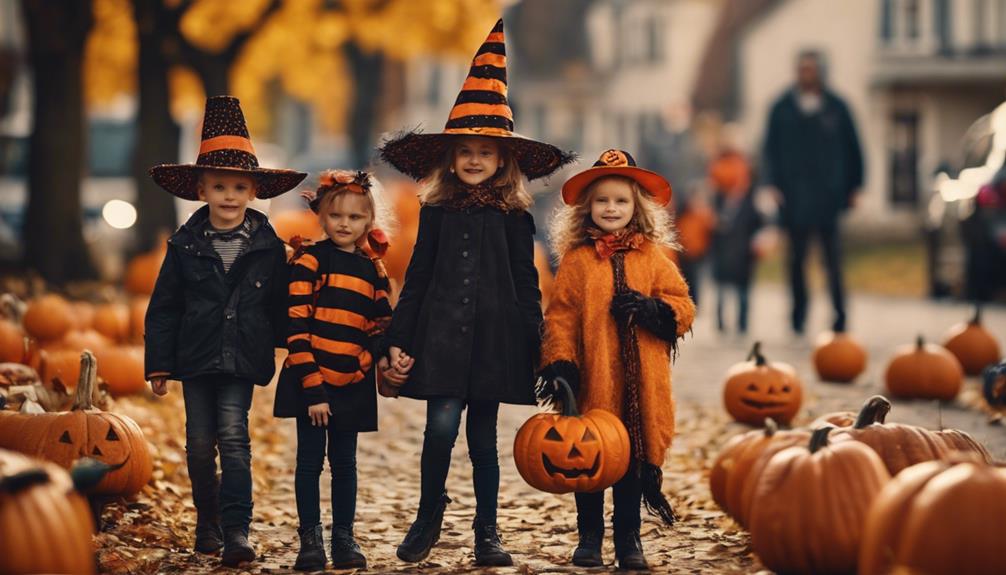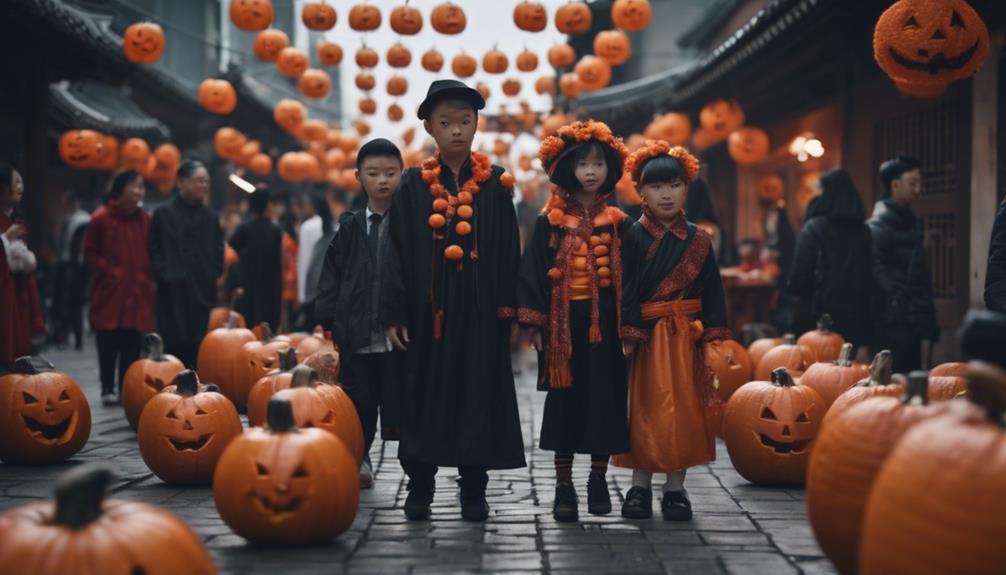Russians have increasingly embraced Halloween traditions, especially since the 1990s. Young individuals actively participate in Halloween events, enjoying costumes, makeup, and themed parties in bars and clubs. While Svyatki, the Russian equivalent, is a traditional celebration in January with spiritual elements like fortune-telling and dressing up, modern Svyatki gatherings have become simpler. Urban areas in Russia host Halloween parties featuring contests, themed decorations, and activities for both adults and children. Although some Russians view Halloween as foreign, many display tolerance towards celebrants. The complexities of Western versus Russian Halloween traditions illustrate distinct observations, hinting at cultural nuances to explore further.
Key Takeaways
- Halloween has gained popularity in Russia, especially among young people for costumes and themed parties.
- Traditional Russian celebrations like Svyatki have similarities to Halloween in dressing up and spiritual beliefs.
- Halloween parties with costume contests, themed drinks, and decorations are common in urban areas.
- Most Russians view Halloween as extrinsic to their culture, but tolerance towards celebrations is prevalent.
- Russian Halloween traditions focus on costumes, makeup, and themed parties, with influences from both Western and traditional Russian customs.
Halloween in Russian Culture
Halloween in Russian culture has seen a surge in popularity since the 1990s, influenced by Western traditions and embraced particularly by young people for its focus on costumes and makeup. The youth in Russia have taken a keen interest in Halloween, with themed parties becoming a popular way to celebrate.
Young Russians enjoy the opportunity to dress up in creative costumes and experiment with elaborate makeup looks, adding a touch of excitement to the festivities. Bars and clubs across the country organize Halloween-themed events, complete with contests and special menus, catering to the enthusiasm of the younger crowd.
Additionally, some locations in Russia offer Halloween activities specifically designed for children, further contributing to the widespread appeal of the holiday among different age groups. Despite not being a traditional Russian holiday, Halloween has found its place in the hearts of many Russians, especially the youth, who relish the chance to express themselves through imaginative costumes and spooky makeup.
Svyatki: Russian Halloween Equivalent
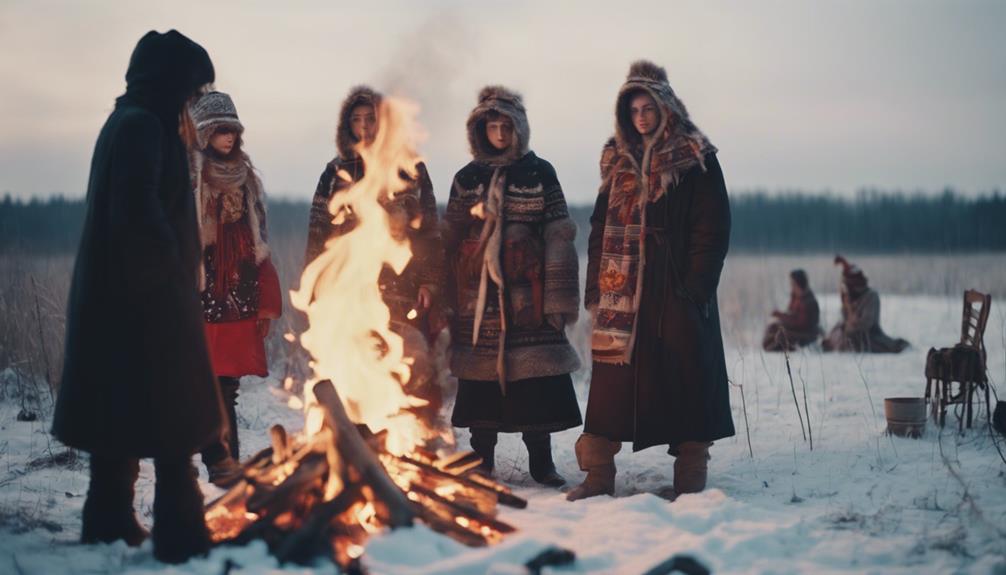
Svyatki, the Russian equivalent of Halloween, has its origins deeply rooted in traditional beliefs and practices. During Svyatki, people engaged in fortune-telling, donned costumes, and sang songs while visiting homes.
Although not as widely celebrated today, Svyatki held significant cultural and spiritual importance in traditional Russian customs.
Svyatki Origins
Originating in Russia, the festival known as Svyatki, celebrated from January 6 to January 19, has long been associated with spiritual beliefs and fortune-telling practices. While Svyatki may seem similar to Halloween, with its focus on spirits and divination, its origins trace back to ancient Slavic traditions that predate the influence of Celtic people. To give you a better insight into the significance of Svyatki, let's explore a table highlighting key aspects:
| Aspect | Description | Importance |
|---|---|---|
| Spiritual Beliefs | Svyatki was a time when the boundary between the living and the dead was believed to be thin. | Understanding cultural beliefs |
| Fortune-Telling | People engaged in various divination practices during Svyatki to predict their future. | Revealing mystical traditions |
| Traditional Customs | Dressing up, singing songs, and seeking blessings were integral parts of Svyatki celebrations. | Maintaining cultural practices |
These elements showcase the rich tapestry of traditions that make up the festival of Svyatki, shedding light on its unique origins and practices.
Traditional Svyatki Practices
Exploring the traditional practices of Svyatki reveals a fascinating array of customs and beliefs that mirror the essence of Halloween celebrations in Russia. During Svyatki, the belief in active spirits, particularly the ghosts of the dead, was prevalent. People engaged in various activities such as fortune-telling and dressing up in costumes to ward off these spirits.
One unique aspect of Svyatki was the tradition of going from house to house, singing songs, and receiving food while providing blessings in return. This exchange symbolized a sense of community and mutual support during this spiritually charged time.
The period of Svyatki, lasting from January 6 to January 19, encompassed elements of both spiritual beliefs and festive rituals, creating a blend of reverence and celebration. These traditions offered a glimpse into the historical roots of Russian culture and the significance placed on honoring the spirits of the departed during this special time of the year.
Modern Svyatki Celebrations
Modern Russian Halloween celebrations today are characterized by a more subdued atmosphere compared to the elaborate festivities seen in the US. During Svyatki, the Russian Halloween equivalent traditionally observed from January 6 to January 19, modern practices have evolved to reflect a shift towards simpler and more intimate gatherings.
While Svyatki historically involved activities like fortune-telling, dressing up in costumes, and going from house to house singing songs, the contemporary approach to these celebrations has taken on a more modest tone. In present times, themed parties and club events have become more common during Svyatki, departing from the traditional customs of the past.
The cultural significance of Svyatki still resonates with its historical roots in beliefs about active spirits and fortune-telling practices, albeit in a more modernized context. As Russian Halloween traditions continue to adapt to contemporary lifestyles, the essence of Svyatki remains a reminder of the historical ties and cultural heritage associated with this festive period.
Modern Halloween Celebrations in Russia
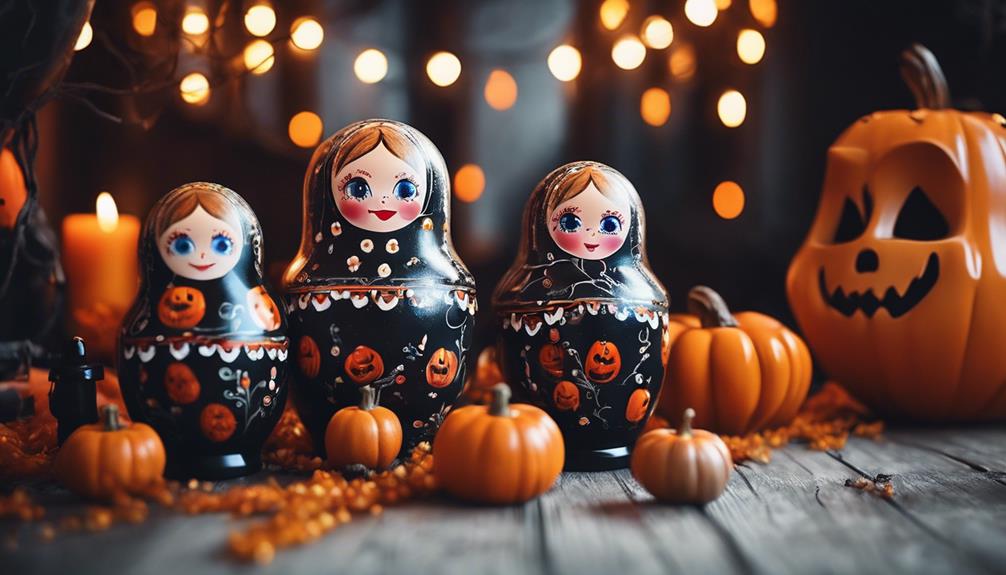
Halloween celebrations in Russia today are characterized by a shift towards themed parties and club events rather than traditional observances. Compared to the elaborate festivities seen in the US, Russian Halloween celebrations tend to be more subdued, with themed parties being a popular choice for those who do partake in the holiday.
Costumes worn during these events range from simple to elaborate, often featuring popular characters or themes. While Halloween isn't a major holiday in Russia, it has been gaining some traction in recent years. Despite this, the holiday isn't deeply ingrained in Russian culture compared to other traditional festivities.
Themed parties provide an avenue for Russians to enjoy the spirit of Halloween in a more modern and social setting. These events offer a fun way to engage with the holiday without the need for elaborate decorations or traditional customs.
Halloween Parties and Events
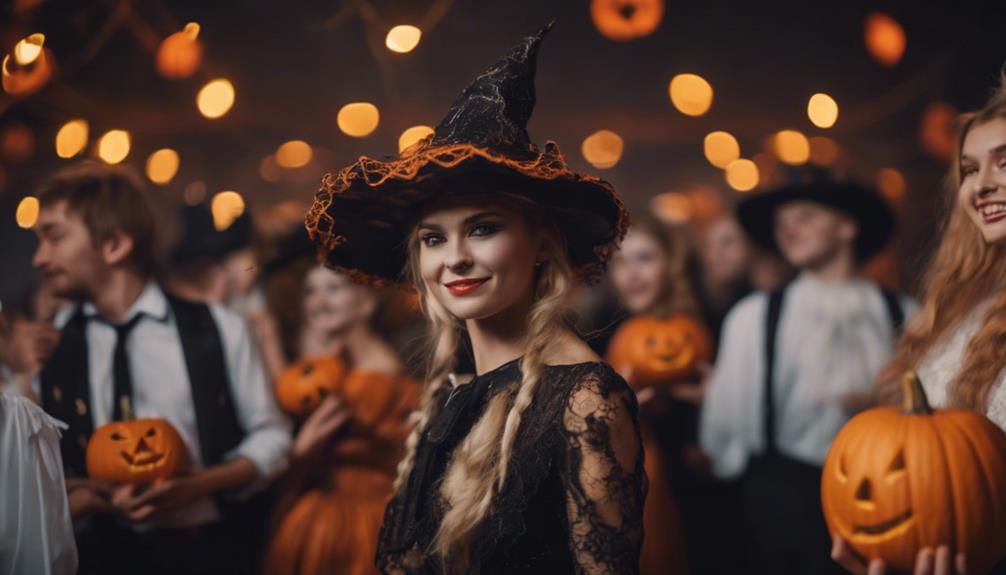
In Russian bars and clubs, Halloween-themed parties and events create a festive atmosphere with costume contests, special menus, and spooky decorations. These gatherings offer a unique opportunity for people to immerse themselves in the Halloween spirit and enjoy a night of eerie fun.
Here are some key aspects of Halloween parties and events in Russia:
- Halloween-themed parties are more common in urban areas, drawing crowds looking for a spooky celebration.
- Costume contests are a popular feature, allowing party-goers to showcase their creativity and imagination with elaborate outfits.
- Special menus often include themed drinks and dishes that add to the festive ambiance of the event.
- Spooky decorations transform venues into haunted spaces, enhancing the Halloween experience for attendees.
- Some locations in Russia also cater to children by organizing Halloween activities like costume parades and trick-or-treating events, making the holiday enjoyable for families as well.
Russian Attitudes Towards Halloween
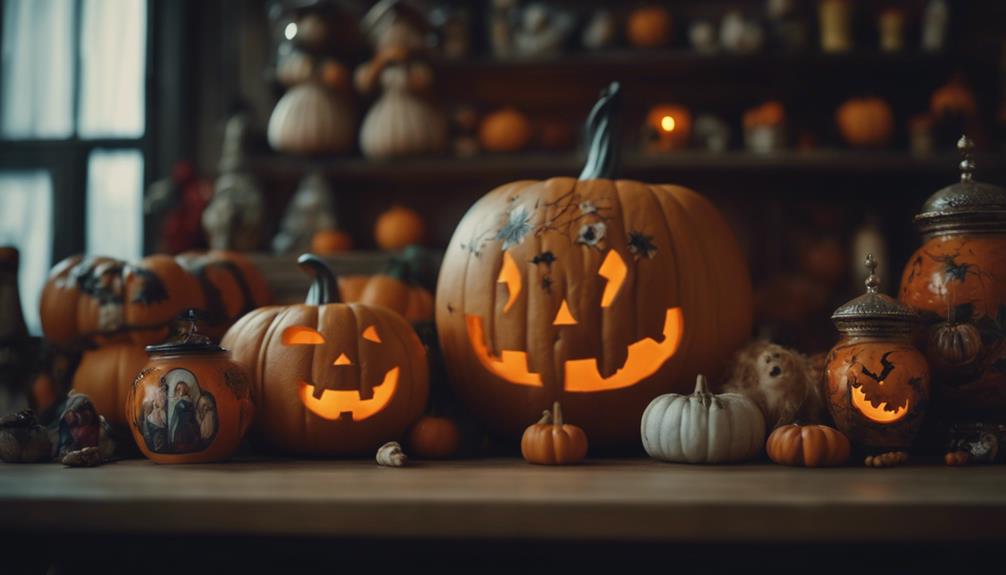
Russian attitudes towards Halloween vary greatly. A majority consider it extrinsic to their culture. While only a small percentage plan to celebrate, most Russians don't mind if others partake in Halloween festivities.
However, some individuals harbor negative sentiments towards the holiday and its commercial influence.
Russian Halloween Participation
With only 3% of the population planning to celebrate, Russian attitudes towards Halloween appear largely indifferent, with 18% expressing negativity and 13% showing positivity towards the holiday. Despite Halloween gaining some popularity in Russia, the majority of people still view it with skepticism or disinterest.
Here are some key points regarding Russian Halloween participation:
- 67% of Russians believe Halloween is extrinsic to Russian culture.
- Reasons for not celebrating Halloween include 34% finding it irrelevant and 16% seeing nothing good in the holiday.
- 68% of Russians don't mind if others celebrate Halloween, showing a general indifference towards the holiday.
- Some perceive Halloween celebrators negatively, with 18% expressing disapproval.
- On the other hand, 13% of Russians have a positive attitude towards those who embrace Halloween traditions.
Cultural Significance in Russia
Despite its limited embrace in Russia, Halloween holds a unique cultural significance that reflects attitudes towards foreign traditions. In Russia, where the Russian Orthodox Church plays a significant role in shaping cultural practices, Halloween is often perceived as extrinsic to the country's heritage. This perception is evident considering the low percentage of Russians, only 3%, who plan to celebrate Halloween, as opposed to the 93% who are aware of the holiday.
The influence of the Russian Orthodox Church is also reflected in the comparison drawn between Halloween and 'Svyatki,' a traditional Russian celebration that shares similarities with Halloween when it comes to dressing up and fortune-telling. While many Russians view Halloween as a foreign tradition, there's a level of tolerance towards those who choose to partake in the festivities. This tolerant attitude is evidenced by the 68% of Russians who don't mind if others celebrate Halloween.
Commercial Influence on Halloween
Evident through themed parties and events organized by bars and clubs, the commercial influence on Halloween in Russia is palpable. Despite not being deeply rooted in Russian culture, Halloween has gained popularity, especially among the youth who enjoy the dress-up and party aspects. Here are some key points highlighting the commercial impact on Halloween in Russia:
- Russian establishments host Halloween-themed contests and offer special menus to attract customers.
- Costumes and makeup opportunities are embraced by some Russians, showcasing the commercial side of the holiday.
- Bars and clubs organize Halloween parties, contributing to the commercialization of the celebration.
The Orthodox Church's influence in Russia contrasts with the commercial aspects of Halloween, leading to varying attitudes towards the holiday. While Halloween remains a more superficially celebrated holiday in Russia, the commercial influence continues to shape how it's observed in the country.
Evolution of Halloween in Russia
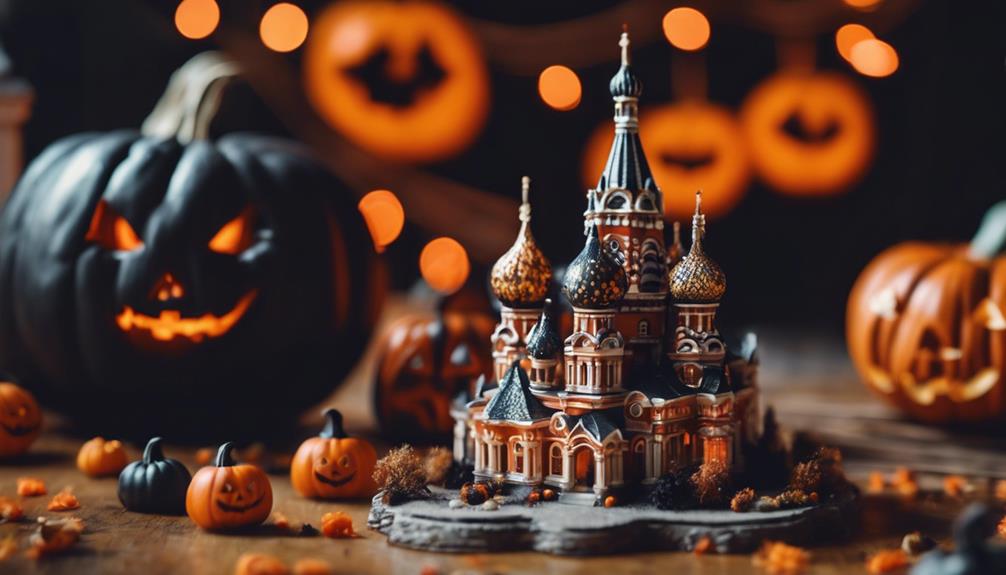
Since the 1990s, Halloween in Russia has experienced a notable increase in popularity, largely influenced by Western culture. Russian Halloween celebrations primarily revolve around costumes and makeup, with the youth embracing this aspect fervently.
Halloween-themed parties in Russian bars and clubs have become commonplace, featuring contests and special menus to cater to the celebratory spirit. Additionally, certain locations in Russia now offer Halloween activities tailored for children, allowing them to partake in the festivities in a more child-friendly manner.
Despite not being a traditional holiday in Russia, Halloween has steadily gained traction, particularly among the younger demographic. The evolution of Halloween in Russia showcases a shift towards embracing the fun and creative elements of the holiday, reflecting a blend of international influences with local enthusiasm.
As the popularity of Halloween continues to grow in Russia, the celebration of costumes and festive gatherings has become an integral part of the cultural landscape, enriching the diversity of holiday traditions in the country.
Fortune-Telling Traditions in Russia
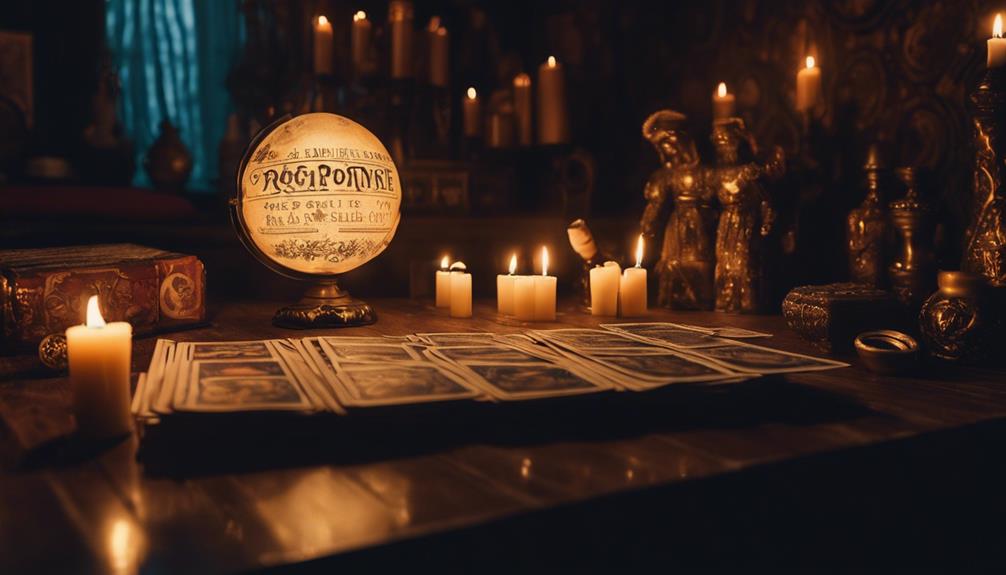
Fortune-telling has long been intertwined with traditional Russian celebrations, particularly during the festive period of 'Svyatki'. This practice was a significant aspect of the 'Svyatki' festivities, reflecting the deep-rooted belief in spirits and divination among the people.
Here are some insights into the fortune-telling traditions in Russia:
- 'Svyatki' involved dressing up in costumes and engaging in fortune-telling activities.
- People would go from house to house singing songs and receiving blessings while participating in fortune-telling.
- The tradition of fortune-telling during 'Svyatki' was believed to connect people with the spiritual world.
- Fortune-telling was a common practice during the 'Svyatki' period, where individuals sought insights into their future.
- The act of fortune-telling during 'Svyatki' wasn't only a form of entertainment but also a way for people to seek guidance and connect with the supernatural world.
Comparing Western and Russian Halloween
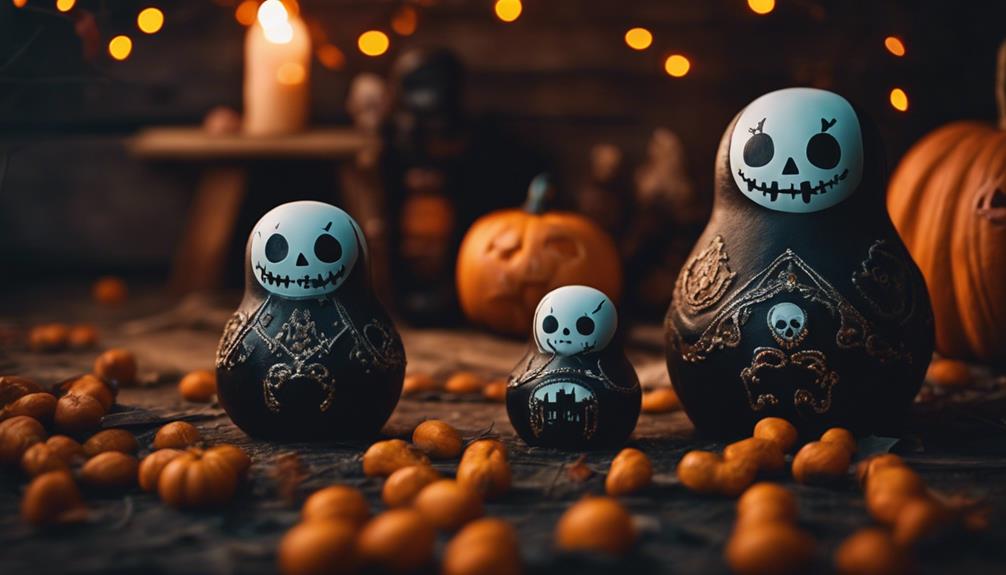
When comparing Western Halloween traditions to those in Russia, it becomes apparent that the cultural significance and scale of celebration differ greatly. In Western countries, Halloween is widely embraced with elaborate decorations, trick-or-treating, and costume parties.
In contrast, Russian Halloween traditions are more subdued, with some themed parties and club events being the extent of the celebration. The Russian equivalent of Halloween, known as 'Svyatki,' involves activities like fortune-telling and dressing up in costumes. Historically, 'Svyatki' was a time for singing songs and receiving blessings, reflecting a more traditional and less commercialized approach compared to Western Halloween.
While dressing up in costumes is a common element in both Western and Russian celebrations, the overall cultural significance of Halloween is far greater in Western nations. The differences in the scale and customs surrounding Halloween highlight the distinct ways in which this holiday is observed in Western countries compared to Russia.
The Future of Halloween in Russia
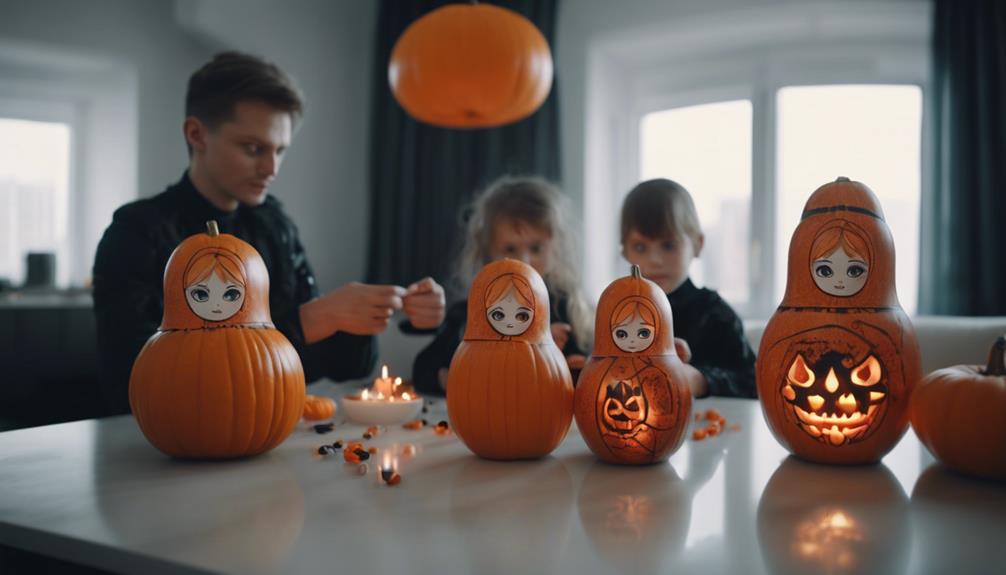
Looking ahead, the evolution of Halloween in Russia is poised to reflect a blend of traditional 'Svyatki' customs and modern influences, shaping a unique celebration landscape. While Halloween in Russia remains a niche celebration, there's potential for growth and adaptation as cultural influences continue to mingle.
Here are some potential trends that could shape the future of Halloween in Russia:
- Incorporating elements of 'Svyatki' traditions into Halloween celebrations
- Increasing popularity of themed parties and club events centered around Halloween
- Embracing the practice of dressing up in costumes as a key aspect of the holiday
- Exploring new ways to merge Western Halloween customs with Russian traditions
- Creating a more inclusive and diverse Halloween celebration atmosphere that appeals to a broader audience
As Halloween gains traction in Russia, the fusion of old and new practices is likely to create a distinctive and evolving holiday experience for both participants and observers.
Frequently Asked Questions
Do Russian People Celebrate Halloween?
Russian people's celebration of Halloween remains limited, with only 3% intending to partake in the festivities, largely perceived as foreign to Russian culture. Remarkably, 13% of celebrants fall within the 18-24 age group, indicating a younger demographic's interest.
Despite this, the majority, 67%, consider Halloween extrinsic to their traditions. Interestingly, 68% express neutrality towards others celebrating the holiday, showcasing a growing awareness of Halloween in the country since 2017.
Where Do Most Halloween Traditions Come From?
Most Halloween traditions trace back over 2,000 years to Celtic roots. The celebration falls on the evening of October 31st, morphing into November 1st. Activities like trick-or-treating and pumpkin carving have evolved through time.
It's noteworthy that there are parallels with Russian customs such as Kolyada and fortune-telling. In Celtic culture, Halloween signaled the start of the new year and the onset of the dark, cold season.
What Countries Don't Recognize Halloween?
In many Eastern European countries, such as Russia, Ukraine, and Belarus, Halloween traditions aren't widely recognized or celebrated.
Orthodox Christian nations, like Russia, often prioritize religious holidays over Halloween, leading to a lack of enthusiasm for this Western tradition.
Countries in the Slavic region generally don't embrace Halloween as a mainstream holiday, with cultural and religious factors playing a significant role in the absence of Halloween celebrations.
What Do Russians Do for Fun?
For fun, Russians engage in a variety of activities. Many enjoy socializing at themed parties, whether at bars, clubs, or with friends. Costumes range from simple outfits like vampires or kitties to elaborate ensembles.
Some may partake in Halloween traditions such as pumpkin carving and trick-or-treating. While Halloween celebrations in Russia are less elaborate compared to some countries, themed events and costume parties remain popular ways for Russians to have fun.
Conclusion
To sum up, while Russians may not fully embrace traditional Halloween customs, their own unique Svyatki celebrations offer a fascinating glimpse into their cultural practices. Modern Halloween events in Russia are gaining popularity, blending Western influences with local traditions.
As the holiday continues to evolve in Russia, it will be interesting to see how these diverse cultural elements intersect. The future of Halloween in Russia holds promise for a vibrant and eclectic celebration that merges the old with the new, creating a truly unforgettable experience.
